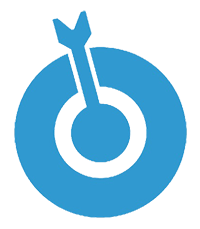AI chat is no longer just about faster answers or conversational tone. Search.com, a division of Public Good, has launched a generative AI search…
In conversation with Abdulrahman Jogbojogbo, product marketer at Paystack


This article is brought to you as part of a new partnership between two of Africa's foremost news and information platforms for African tech startups, Ventureburn and Techpoint Africa.
Paystack is known for being one of the first startups to disrupt payments in Nigeria. According to the startup, over 60 000 businesses in Nigeria use the payment gateway to collect payments.
Since the start of the year, a number of fintech startups have ventured into ecommerce and have seen it as fruit ripe for the taking. It is very likely these startups have had the space in sight for a while but recent happenings like the coronavirus pandemic seem to have triggered some into taking action.
However, for Paystack, it took meticulous planning to do so. In this interview, Abdulrahman Jogbojogbo, a product marketer at the startup, talks with Techpoint Africa on the startup’s recently launched Commerce platform, integration with a popular ecommerce site builder, Wix, and local and global competition.
Since the lockdown, payments companies have experienced mixed results in terms of onboarding new customers and the sheer volume of transactions. How has business been for Paystack this period?
The number of business owners signing up weekly to use Paystack to collect online payments has tripled in the last two months. Even with the lockdown lifted, merchants have had to evolve quickly to adapt to the new reality.
This is why we have, among other Covid-19 interventions, published a 6,000-word guide on tactics for food businesses to keep running during a pandemic, as well as a primer to help Nigerian and Ghanaian merchants take their businesses online for the first time.
Also, it’s not just small merchants coming online. A few weeks ago, SPAR, one of Africa’s largest retail chains, began offering direct home delivery in Nigeria for the first time with online payments powered by Paystack.
As more of these businesses come online, they use ecommerce platforms like WooCommerce and Shopify. However, Paystack has decided to integrate with Wix. Why is this important for African merchants?
Paystack already works for merchants who use WooCommerce and Shopify, and we are always seeking partnerships with world-class platforms to expand the universe of options available to our users. Our integration with Wix does exactly that. We are working on deploying more integrations as soon as we can.
With this integration, merchants can collect payments via any of the Wix apps except Wix Hotels and Wix Restaurants. Why is this so and when can merchants in these industries expect the integration?
Wix Hotels and Wix Restaurants require different integrations and logistical considerations. For now, we support Wix Stores, Wix Bookings, Wix Events, Wix Video, and Wix Music, and we’ll make Wix Hotels and Wix Restaurants available as soon it’s possible to do so.
Are there plans to integrate with other ecommerce website builders?
Yes. We’ll be announcing our Craft CMS integration soon. There’s also a list of website builders we’re looking to integrate with on our public commerce roadmap.
I understand that this integration is in line with the launch of Paystack Commerce. Tell us what the product is about and why merchants should use it.
Paystack Commerce is not one thing. It is a collection of free tools that we’ve put together to help African brands and creators sell more digital and physical goods online. That includes Product Links, which is an incredibly powerful way to showcase and sell one product without needing to build a whole website.
For people who have value to offer and things to sell, but aren’t quite at the point where they can go all out and use ecommerce software, Paystack’s Commerce tools can bridge that gap. But our existing integrations with WooCommerce, Shopify, and Wix, as well as our guides, knowledge resources and more to come, are part of Paystack’s Commerce initiatives.
This year has seen different payments companies and even banks enter the ecommerce space. Why is Paystack doing the same?
This isn’t something we are doing on a whim. For the last two years, we have spent a lot of time talking to our users to learn and understand what tools they need to succeed.
After a lot of consultation, we realised that although a number of commerce platforms exist, they are sometimes not optimised for African creators. For example, many of the more established commerce platforms require a recurring USD subscription, which can be costly for someone who is just starting out. And other platforms sometimes lack integration to an African payment processor entirely.
We set out to create a collection of simple and powerful tools that would let anyone, from brands to writers, designers, musicians, and artists — people who you might not consider ‘merchants’ in the traditional sense — share their creativity and get paid when they do so.
And for creators with more complex needs, we’re also going into business partnerships necessary to make direct integrations with platforms that merchants have asked for possible. We actually get into the history of Commerce at Paystack in this blogpost.
How do you see Paystack faring against these competitors in Nigeria?
The trends that we are seeing indicate that this is a rising tide that lifts all boats, and we are excited and grateful to be in a position to participate in a wave that accelerates the adoption of digital selling tools by merchants in Nigeria and around the continent.
Talking about global players, how different is Paystack Commerce from platforms like Shopify?
Not everyone has the time or resources to build out and maintain an ecommerce website or store. And for people who are only selling one or even two things, owning an entire ecommerce website isn’t necessarily the most efficient way to sell.
Paystack Commerce provides a super simple way for anyone to sell online with the least amount of effort. It’s perfect for someone who isn’t in a position to invest the time and energy that owning a dedicated website requires.
Our hope is that Paystack Commerce will be a way for a new generation of sellers to take their very first step into online commerce.
Facebook introduced Instagram Checkout which currently is not in Nigeria and most parts of Africa. Recently they launched WhatsApp Pay. Do you think these products pose a threat to Paystack Commerce should they arrive on these shores?
Significant amounts of commerce already happen on social media platforms. Our approach is to embrace tools and forge partnerships wherever possible with platforms that contribute to the acceleration and adoption of digital payments and commerce tools in Africa.
Are there plans to take Paystack Commerce outside Africa?
At this time we are focused on delivering the products on our public commerce roadmap to African brands and creators.
The original version of this article appeared on Techpoint Africa on 29 June. See it here.
Featured image: Abdulrahman Jogbojobo (Product marketer, Paystack). Source: Supplied.

